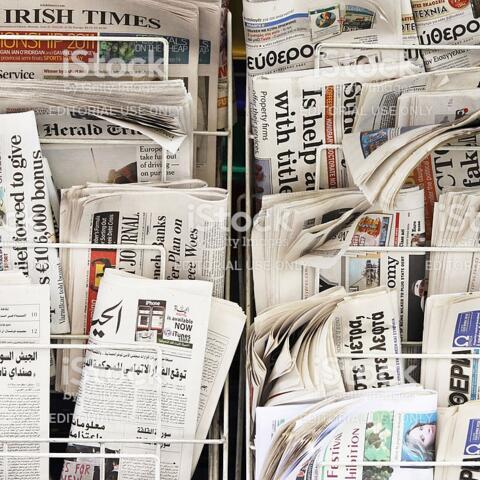Online data means real-time fact-checking for today's journalists
Issued on:
Play - 10:34
Journalists are increasingly using data to improve their coverage of events and get to the truth. Key examples include the recent US presidential debate which was fact-checked in real time and the growing use of satellite imagery to tell Syria's conflict.

The practise of using data to improve reportage is not new.
The Guardian set the stage for data journalism in 1821, when it leaked a table of schools in Manchester listing the number of students who attended it and the costs per school. The aim was to show the real number of students receiving free education.
A century later the setting is a TV debate between US presidential hopefuls Hillary Clinton and Donald Trump, where for the first time their every word was fact-checked in real time.
"Our goal was that when a candidate said something, we could provide the context for that, explain what they had said in the past, was it different to what they had said previously?" David Eads, the Supervising Editor of NPR's Visuals Team told RFI.
NPR, together with the New York Times, streamed the transcript of the debate almost in real time, mobilising a team of reporters and editors to provide annotations and analysis.
"We had expected a strong response but we were completely overwhelmed with how hungry the audience was for this type of content," Eads added.
Big data and numbers often make journalists – the more artsy ones at least - squirm.
Not Eads, who details how he initially studied physics before falling in love with the industry through "chasing around police officers in Chicago".
The most hard-hitting investigations in recent years have all been accomplished thanks to journalists ploughing through piles of data online.
Leaks, eyewitness reports, mobile phone video
The Panama Papers, and before them the Offshore Leaks, Swiss Leaks and Wikileaks are but a few examples of projects that had a worldwide impact, both with the public and with institutions.
While NPR are checking the politicians, other media organisations such as Verifeye Media are verifying the material sent in by eyewitnesses.
"More and more news reports use eyewitness media or footage taken by the people who are living or caught up in the event and these images are incredibly useful to journalists; if they can be verified. But it's a great struggle for many of us," explains founder John McHugh.
The challenge of Syria
The Syria conflict in particular poses enormous challenges to agencies like Verifeye media.
"We had someone send some photos to us from Syria," MachHugh recalls. "They weren't taken with our app, these photos purported to show the first images of British special forces operating in Syria. We couldn't verify these photos, if we could have verified them it would have been a big scoop for our start-up; but we couldn't."
What does he make of satellite imagery being used in cities like Aleppo to tell the civilians' story?
“It's always the case that some information is better than no information and journalists are forced to do whatever it takes to tell the story. I think the satellite imagery being used to tell the story in Syria right now is important but I don't think it will ever replace journalists on the ground."
Reality check
If combing through material from Syria, or distinguishing between the half-truths of presidential candidates, may seem like a cumbersome exercise for David and John, both were left flabbergasted by the tale of a David Beckham wannabe in the UK who's spent a fortune to look like his idol.
"The story to me, I would have to verify it and investigate because it sounds like some embellished tabloid tale,” reckons John.
Nineteen-year-old Jack Johnson was recently given a reality check by ITV's flagship programme This Morning for spending more than 20,000 euros to try to look like his sporting idol, despite being on state benefits.
"I don"t think I'd spend any money to try to look like any of my idols," says David, "my idols are dead journalists and scientists, so kind of homely people as it is."
Daily newsletterReceive essential international news every morning
Subscribe